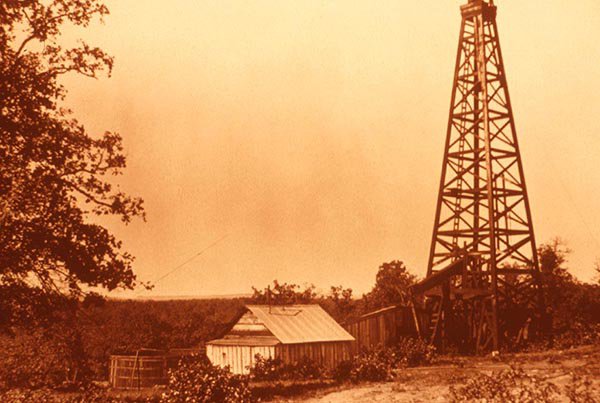Fueling Progress Blog

 Engineering Technology History
Engineering Technology History
Glenda E. Smith, SPE
8 January 2020

I am not an engineer, although I have been an SPE member since 1990. I have worked with engineers throughout my career and I am often told that I think like one. Who knows, I might have become an engineer if anyone had encouraged me that it was a good career path for a woman. In the mid-1970s, most high school guidance counselors were still pushing young women toward more traditional roles. [That is why I love SPE’s Energy4me program – encouraging all students toward STEM careers.]
But I digress. I am in awe of the many accomplishments of all types of engineers:
- they build structures and bridges that stand the test of time
- they take men and women into space and bring them home safely
- they develop equipment and machines that greatly enhance our quality of life
- they produce and transform the products of the earth into a wide array of products essential to our daily lives
- and so much more.
While all types of engineering have their challenges, I find it especially interesting to contemplate the job of petroleum engineers. They are dealing with rocks and fluids that they cannot directly observe in place. They figure out how to understand what is happening 10-, 15-, 20-thousand or more feet below the surface. A whole range of analogs, experiments, and rules evolved out of experience guide our understanding of what is happening in the reservoir. The evolution of our understanding over the past 100 years is truly amazing. As technology continues to advance, with downhole sensors feeding more data back to surface, our understanding will sharpen further – enabling us to recover the earth’s oil and gas resources even more efficiently and with less environmental impact.
Few people realize how ubiquitous things made from oil and gas are, and how dependent they are on our industry. And most have no idea of the complexities of finding, developing, and producing oil and gas – the costs, the technologies, and the ingenuity of the engineers who make it all possible. Meeting the world’s demands for energy is a huge engineering accomplishment.
A decade ago, nine engineering professional societies (including SPE), under the umbrella of the United Engineering Foundation, launched a project to document and capture for posterity, the amazing accomplishments of engineers. The Engineering Technology History wiki is the result.
Like a trip to Wikipedia, where following multiple links to interesting topics sometimes leaves me trying to remember what I was looking for in the first place, I can lose time reading some of the fascinating accounts in the Engineering Technology History wiki. It includes photos and stories, milestones, biographies, oral history videos, and first-hand accounts across a wide range of engineering disciplines.
There are many great stories from petroleum engineering, including:
- Challenges of completing wells in permafrost on the North Slope
- Learning by serendipity when equations couldn’t provide an answer
- Research that led to horizontal wells
- Invention of the casing shoe
- Initial applications for downhole gauges
- Challenges and opportunities for women in the industry
- Finding the right mud formula for shale drilling (in the 1960s)
- Innovations coming out of graduate student research
- Evolution of HSE practices.
What is captured in the Engineering Technology History wiki is just a fraction of what petroleum engineers have learned and accomplished. Prior to the downturn, SPE had a staff person devoted to organizing the materials we had available, capturing oral histories, and helping edit first hand accounts. Since then we have worked with AIME on oral history captures. There is so much that could be added, to preserve not only what petroleum engineers have accomplished, but also how those innovations came about.
The lovely thing about a wiki is that you can contribute. Members like you wrote the first-hand accounts in the wiki – about key challenges they solved, or just an interesting experience they had. With so many experienced personnel in our industry retiring, we risk losing some of their experiences and inspiring stories. I encourage each of you to consider what you have to share: working with an industry luminary and learning from their mentorship; advancing a technology or solving a difficult technical problem; or telling a great story from earlier times in the industry.
If you ever find yourself in need of inspiration to deal with that next challenge, visit the Engineering Technology History wiki.
Glenda Smith is the VP, Communications for the Society of Petroleum Engineers. Prior to SPE, she worked for the American Petroleum Institute, ICF Resources Consulting, and the Oil & Gas Journal.
Additional Posts

Telling Our Stories 30 October 2019

Natural Gas Helps Eliminate Energy Poverty 4 December 2019

The Future? 21 February 2020

Unprecedented. 27 April 2020

Sustainability and Verb Tenses: What Do They Have in Common? 1 June 2020
Have an interesting story to tell? Have you or your company had a positive impact on people's lives through innovation, energy efficiency, environmental protection, community engagement, building infrastructure, or myriad other ways? Then we'd like to hear your story and possibly feature it on this blog. Please email us at stories@spe.org.
The Society of Petroleum Engineers (SPE) is a global, individual membership professional society organized as a 501(c)(3) not-for-profit organization in the US. SPE membership is not just petroleum engineers, but includes professionals of all backgrounds and education working in the upstream oil and gas industry.
